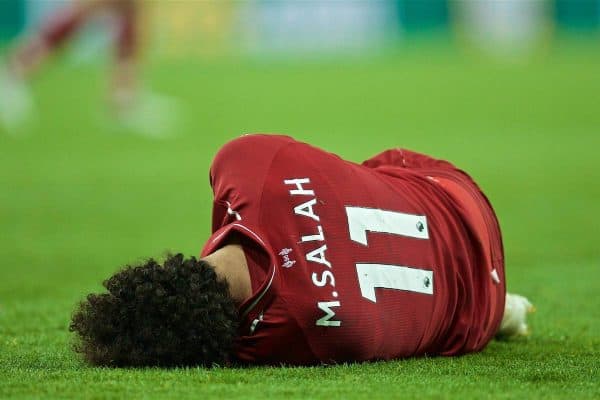Long-awaited ‘concussion substitute’ ruling set for football

IFAB are expected to introduce ‘concussion substitutes’ in football, in the latest attempt to deal with the issue of head injuries in the modern game.

Treating concussion has become a hugely important aspect in recent years, with the well-being of individuals vital.
Football has been criticised for its approach, particularly in comparison to other sports, with Loris Karius continuing after a blow to the head in the Champions League final defeat to Real Madrid in 2018.
Germany’s Christoph Kramer was allowed to play on in the 2014 World Cup final, despite revealing after that he did not know where he was, while Alvaro Pereira and former Liverpool man Javier Mascherano experienced similar in the tournament.
Mohamed Salah missed the second leg of the Champions League semi-finals last season due to a concussion suffered in the 3-2 win at Newcastle in May.
According to The Athletic, IFAB (International Football Association Board) are in talks to introduce the idea of a ‘concussion sub’.
The game’s law-making body will hold a number of advisory panel meetings in Zurich on October 23, with the main proposal “to increase the current three-minute assessment window for a suspected concussion to a mandatory 10-minute test.”
That would allow a player to be replaced while he receives treatment, in a move that is described as “inevitable and overdue.”

At the moment, teams can potentially be punished for playing with 10 men while a player is receiving treatment for a head injury, proving detrimental to their chances.
This would immediately alleviate that issue, with the replacement either staying on the pitch or coming back off if his team-mate is deemed fit to continue.
There is no denying that there are potential flaws, however, so the plan needs to be perfectly ironed out before they are implemented.
IFAB will need to work out whether teams are afforded an extra substitute, for example, should the ‘concussion sub’ get injured, or if it would count as one of their three replacements.
Similarly, re-introducing a player who has suffered any head injury is questionable, while the replacement in question could risk an injury of his own, coming off and on again in a stop-start manner.
It is a positive step in the right direction, but it needs to be looked at in great depth.




